09 Aug2019
By Rebekah Saylors
This article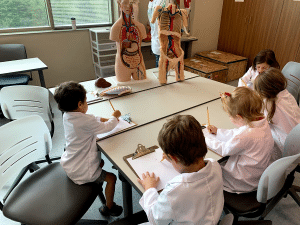 and photo originally appeared in Appalachian Today and are reprinted with permission.
and photo originally appeared in Appalachian Today and are reprinted with permission.
It began with a curiosity of wanting to know more about the human body and culminated with a poster presentation. No, this is not a research project designed by one of Appalachian State University’s senior science majors. The 3D project was completed by some of the university’s youngest Mountaineers at the Lucy Brock Child Development Lab School (LBCDLS).
In late June, the LBCDLS preschool class shared with Appalachian faculty, staff, students and practicum students, as well as family and friends, the knowledge they gained about the human body through the project. Some examples of what they shared:
- A song they wrote with Emily Wills ’19, a graduate student in Appalachian’s master’s music therapy program from Salt Lake City, Utah.
- Life-size tracings of their own bodies, which included their drawings of bones and organs.
- A large, mixed media sculpture of the human body consisting of recycled materials, which was created by the class as a collaborative project.
The health science project provided a reciprocal learning opportunity — broadening the inquiring minds of young scientists while giving Appalachian’s budding educators a front-row seat from which to study
09 Aug2019
By Deborah Koolbeck

The U.S. Department of Education launched an Experimental Sites Initiative focused on the Federal Work Study (FWS) program. FWS is a need-based federal program that provides part-time jobs to students to supplement the financial assistance received from the Federal Pell Grant program and other aid sources. The Experimental Site Initiative for FWS waives several of the statutory and regulatory provisions, including that which would limit the number of hours a student could work, permitting full-time opportunities.
01 Aug2019
By Jacqueline Rodriguez
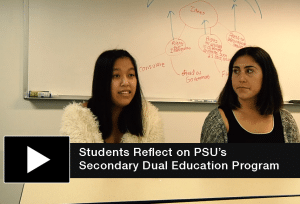 A number of students in Portland State University’s (PSU) Secondary Dual Education Program (SPED) recently reflected on advice they were given before entering the graduate program. “I always want more education than less,” one teacher candidate was advised by a mentor in the field of medicine. The candidate now looks back on her experience in the program with appreciation. “I was ready. I had the resources. I had been in the classroom for two years; it felt natural. I didn’t have the same level of trepidation as some of my first year friends.”
A number of students in Portland State University’s (PSU) Secondary Dual Education Program (SPED) recently reflected on advice they were given before entering the graduate program. “I always want more education than less,” one teacher candidate was advised by a mentor in the field of medicine. The candidate now looks back on her experience in the program with appreciation. “I was ready. I had the resources. I had been in the classroom for two years; it felt natural. I didn’t have the same level of trepidation as some of my first year friends.”
The students who complete the PSU program graduate with a dual endorsement in a secondary education content area and special education. Another candidate reflected on the importance of serving every student in the classroom. His decision to pursue a two-year graduate program in secondary English and special education was an obvious one; it ensured he would be prepared to meet the needs of all students with a range of abilities.
The benefit of being profession-ready is not only valued by the teacher candidates. High school students also note the tremendous advantage they have when a teacher who understands the unique needs of students with IEPs is leading the classroom. In particular, college access traditionally has been stymied for students with significant disabilities. However, one high school student reflected that she has a mentor in her teacher, someone who has guided her toward college-ready curriculum. Learning from their students is another area of mutual benefit expressed by the candidates. The necessity to meet the needs of each student in the classroom is universally acknowledged by candidates, students, and administrators.
To learn more, view the What’s in it for me? video highlighting PSU’s Secondary Dual Education program, part of AACTE’s Research-to-Practice Spotlight Series.
29 Jul2019
By Jerrica Thurman
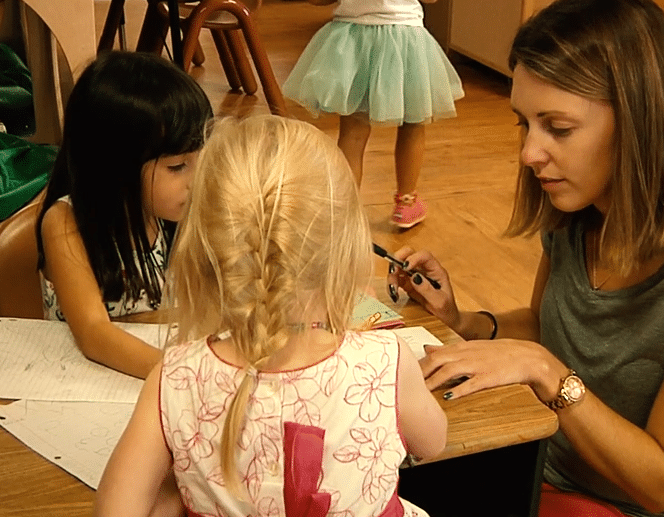 Developing and sustaining partnerships with local school districts are critical to the success of the Bowling Green State University (BGSU) Inclusive Early Childhood (IEC) program. Superintendents who work with BGSU assert that all parties need to understand the challenges each school district and university face and must be willing to bridge the gap between research and clinical practice together. BGSU’s teacher candidates are deployed for clinical practice in special education at local schools including in rural areas.
Developing and sustaining partnerships with local school districts are critical to the success of the Bowling Green State University (BGSU) Inclusive Early Childhood (IEC) program. Superintendents who work with BGSU assert that all parties need to understand the challenges each school district and university face and must be willing to bridge the gap between research and clinical practice together. BGSU’s teacher candidates are deployed for clinical practice in special education at local schools including in rural areas.
“One of the pieces that works really well for us is that all of the people working in the education department at the university are parents themselves of students in our district so there’s a vested interest,” said Francis Scruci, superintendent of Bowling Green City Schools. “I think there’s a mutual respect. We certainly respect what the university does and I think they respect what we’re trying to do at the K-12 level and we understand the challenges that both of us face. We are willing to bridge that gap and try to help each other become successful.”
BGSU’s overall objective is to prepare graduates of the IEC program to teach young children with and without disabilities in inclusive settings. The IEC program blends the best practices from early childhood education with early childhood special education. It addresses the knowledge, skills, and values necessary to meet the needs of each child. Graduates of the program are prepared to provide differentiated, evidence-based instruction to young children from birth through grade 3.
To learn more, watch the Developing and Sustaining Partnerships video highlighting BGSU’s Models of Inclusive Clinical Teacher Preparation, part of AACTE’s Research-to-Practice Spotlight Series.
19 Jul2019
By Katrina Norfleet
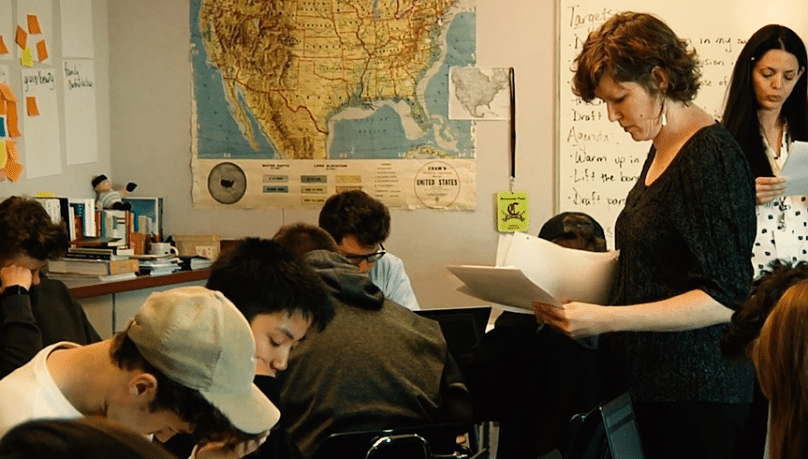
One of the key components of Portland State University’s (PSU) Secondary Dual Education Program is its success in developing and sustaining partnerships with local school districts.
Marvin Lynn, dean of the Graduate School of Education at PSU, shares how the program prepares secondary education teacher candidates to bring content knowledge and “the knowledge that special education teachers have to bare about the learning process and about how to work with these unique populations” to local schools.
Educators like Ana Capac, a special education teacher at Evergreen High School, specifically ask for student teachers from the PSU program because of the mindsets and approaches they bring to the classroom and community. “It is really important that I’m supporting both the student teachers I’m working with on how they are developing this mindset of inclusion, supporting all students, and working within the school to support their colleagues as well,” says Capac.
Andrew Gilford, assistant principal at Clackamas High School, emphasizes this culture shift to more collegial relationships where the PSU teacher candidates and the classroom teachers “speak the same language” and can work together to serve students with disabilities and improve learning outcomes. “Coming from this kind of program and this kind of background, you are immediately an advocate,” adds Rob Parness, special education teacher and former academic coach at Tigard High School.
In discussing the culture shift, Will Parnell, curriculum and instruction department chair at PSU, emphasizes that the program was built based on relationships with the community. “There were local districts that were saying ‘we want special ed teachers that can support students in general ed classrooms’ but they found out that teacher prep programs were not focused on that,” says Susan Bert, assistant professor of practice, special education at PSU. “So there was a need.”
To learn more, view the Developing and Sustaining Partnerships video featuring PSU’s Secondary Dual Education program.
09 Jul2019
By Brandon R.T. Frost
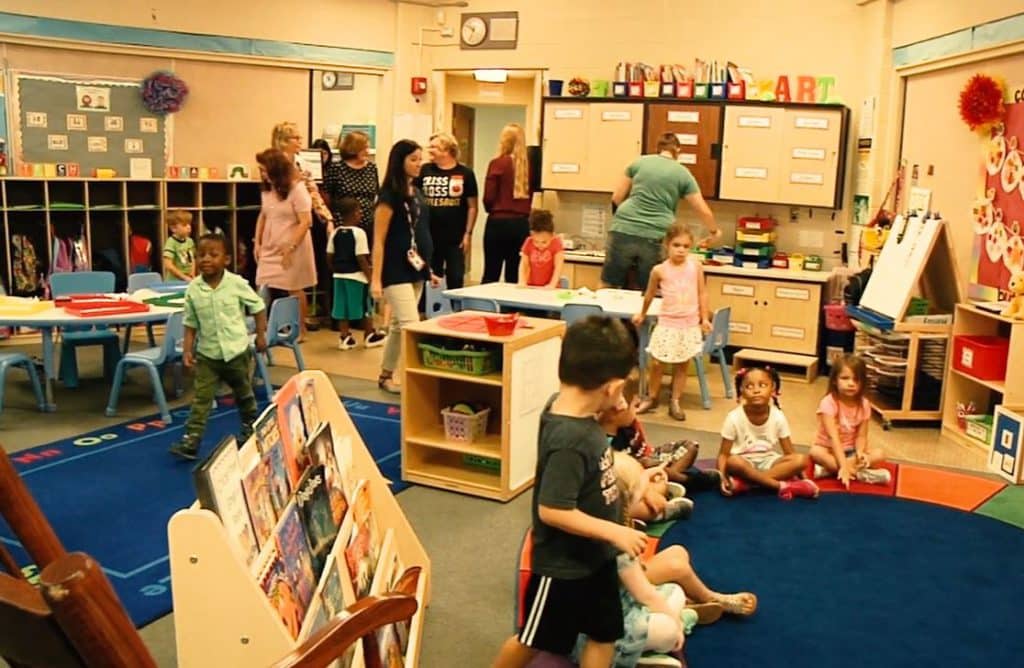
The Dual Licensure component of the Inclusive Early Childhood Program at Bowling Green State University (BGSU) supports teachers by improving their teaching craft and ensuring that teachers’ instructions remain relevant to their students.
Brenda Gift, the director of student services at Educational Services Center of Lake Erie West, applauds the program for providing high quality teachers who are eager to work in integrated classrooms. She further asserts that school districts are more likely to hire BGSU teacher candidates because of their dual licensure. Not only does the dual licensure indicate that teacher candidates can support all students, but it makes them marketable and competitive for hiring.
Some of the mentor teachers in partner school districts who support BGSU teacher candidates are BGSU alumni. Despite the responsibilities of being a classroom teacher, they value mentoring BGSU teacher candidates because they know how important it is to have an effective and supportive host teacher. The early childhood students benefit from teacher candidates because it provides a smaller teacher-to-student ratio. Teacher candidates agree that having proper training for inclusive education benefits them and the students they teach, assuring they are ready to instruct all learners once they enter the classroom.
To learn more, watch the What’s In It for Me? video highlighting BGSU’s Models of Inclusive Clinical Teacher Preparation, part of AACTE’s Research-to-Practice Spotlight Series.
28 Jun2019
By Brandon R.T. Frost
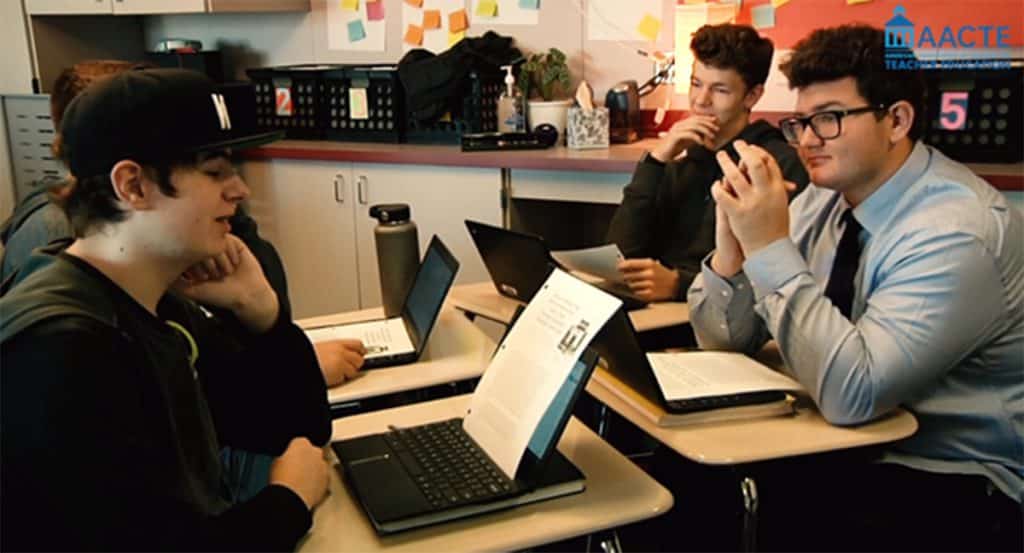
Empowering teachers to feel adequately prepared on their first day of teaching is the goal of Portland State University’s (PSU) Secondary Dual Education Program (SPED). As classrooms becomes more diverse, teachers need skills to address all students’ needs and make every student feel they are included in a positive community.
Andrew Gilford, assistant principal at Clackamas High School, believes the training and preparation his teachers receive from SPED enables them to meet the needs of all their students in the classroom. The program requires all teacher candidates to have two years of practice before entering the classroom. In particular, during the two years candidates engage in a combination of observation and student teaching. Michael Bowersox agrees that the two-year program allowed him to combine his coursework at PSU with classroom practice so that he is ready to be an effective teacher on the very first day as a teacher of record. Teacher candidates are matched with master teachers, learn to plan together, and develop the teaching skills to positively affect student achievement for all.
The highlight of PSU’s Dual Degree program is the training it provides its teacher candidates to be inclusive educators. “A characteristic of a successful classroom is the ability for everyone to feel included and have the opportunity to be included,” says Joseph Cornett, a graduate of PSU and a social studies teacher at David Douglas High School. He explains that the program taught him how to set up his students for success, work collaboratively with teachers, and navigate the school system and curriculum.
To learn more, view the video highlighting PSU’s Secondary Dual Education program, part of AACTE’s Research-to-Practice Spotlight Series.
21 Jun2019
By Brandon R.T. Frost
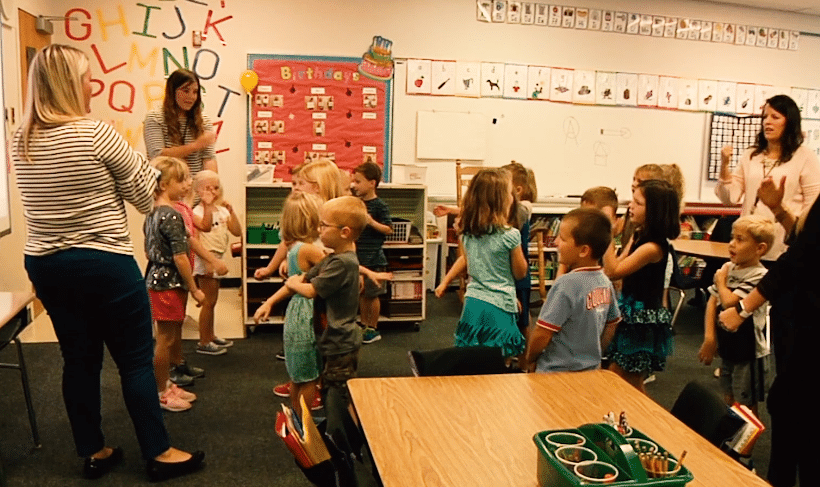
The Early Childhood Inclusive Education Program at Bowling Green State University (BGSU) prepares teachers to educate the youngest of school-age children with a solid foundation for learning. “This program is an example of innovation as it relates to making sure our students at the earliest stage have opportunities to develop and be successful in their lives,” says Rodney Rogers, president of Bowling Green State University. As a public university, BGSU sees itself as serving the public good and views the College of Education & Human Development as a place where all teacher candidates are prepared to meet the needs of their students. Teachers who graduate from the program are ready to enter the classrooms with the skills to accommodate all students.
30 May2019
By Brandon R.T. Frost
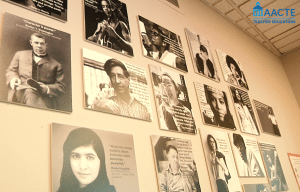
Portland State University’s Graduate School of Education offers a unique, two-year, full-time master’s degree in secondary dual education. In 2014, the Department of Curriculum and Instruction and the Department of Special Education joined together to meet the need of the surrounding communities to increase the number of teachers who are skilled in effective practices for a variety of students. Graduates of the program are equipped to implement inclusive and equitable practices.
“The secondary dual education program in the Graduate School of Education really represents, I think, innovation, collaboration, and equity and inclusion at its highest levels,” says Marvin Lynn, dean of the Graduate School of Education at Portland State University. This particular program was born out of need to ensure all teachers are meeting the needs of all students in the classroom. The emphasis on diversity and equity is part of the Graduate School of Education’s strategic mission as an access university.
30 May2019
By Jennifer Babich
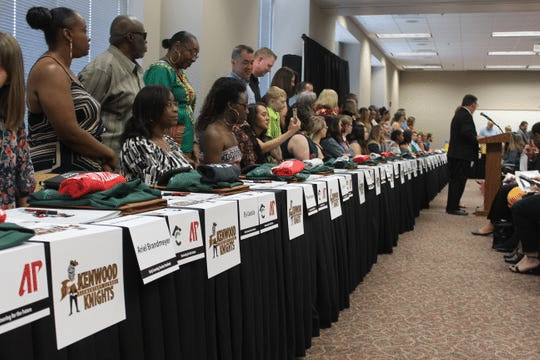
The first class of residents in the Early Learning Teacher Residence program, a partnership between Austin Peay State University and the Clarksville-Montgomery County School System, wait to sign their contracts on May 24, 2019. (Photo: Jennifer Babich)
This article and photo originally appeared in the Leaf Chronicle and are reprinted with permission.
These are not your typical college students.
Instead, they’re the first class of aspiring professionals embarking on a free three-year residency and degree program to turn themselves into teachers, as part of a partnership between Clarksville-Montgomery County Schools and Austin Peay State University.
24 May2019
By Brandon R.T. Frost
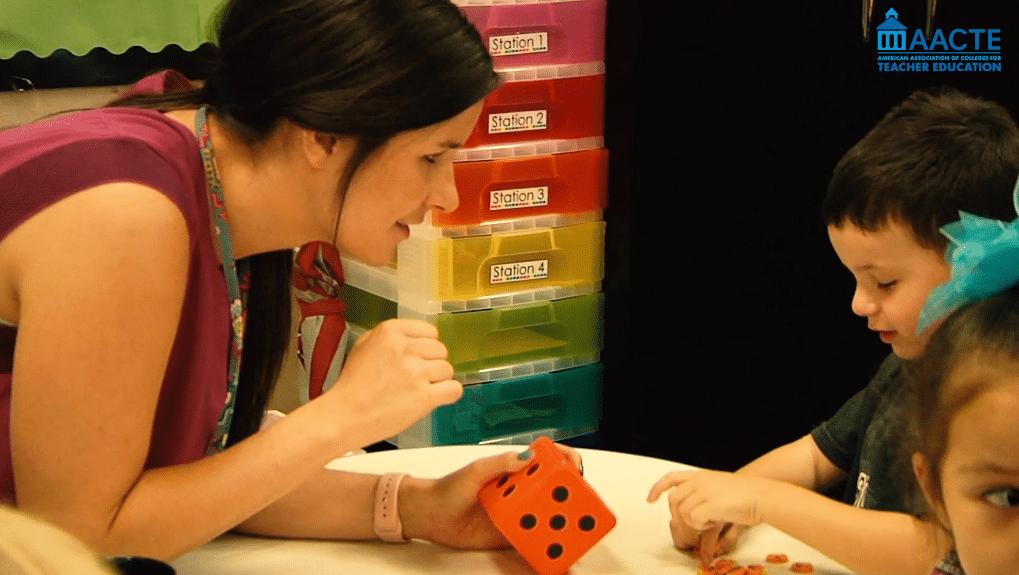
Bowling Green State University’s innovated Inclusive Early Childhood Education program seeks to address the need for teacher candidates to be well prepared to enter the classroom. BGSU recognized the importance of shifting their program to assist their teacher candidates in garnering the necessary teaching practices for a changing classroom environment. “We certainly have a wide array of learners with very diverse needs and one the things that this program helps us do is to ensure that we are graduating teachers that are ready to meet the needs of all those learners,” says Dawn Shinew, dean of the College of Education and Human Development at Bowling Green State University.
Every year, BGSU places over 900 teachers through 88 different partnerships with school districts throughout Ohio, which include both urban and rural districts and social service agencies. Teachers are expected to continue taking coursework during their clinical placements to ensure there is a connection among their coursework and their teacher training in the field. More importantly, BGSU believes teacher candidates should be exposed to the fieldwork earlier than what more traditional programs prescribe. Whereas other, more traditional programs place teacher candidates as student-teachers in their senior year of undergraduate studies, BGSU starts placing juniors in clinical settings with the hope to increase their exposure to their career and receive additional training in a variety of education settings, including special education and inclusive classrooms.
23 May2019
By Georgia Southern University
This article originally appeared on the Georgia Southern University website and is reprinted with permission.
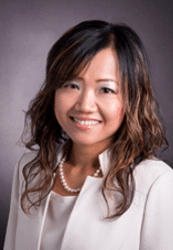 Georgia Southern University and Haven Elementary School are partnering to offer teachers a Gratifying Problem-Solving (GPS) program, which will provide educators unique monthly professional development based on the school’s current need for improved mathematics instruction.
Georgia Southern University and Haven Elementary School are partnering to offer teachers a Gratifying Problem-Solving (GPS) program, which will provide educators unique monthly professional development based on the school’s current need for improved mathematics instruction.
The College of Education’s Jackie Kim, associate professor of elementary and special education, serves as director for the project, totaling $74,976, which is funded by a Community Partnership Grant from the Governor’s Office of Student Achievement.
The GPS program uses a bottom-up approach, allowing the participants at Haven Elementary to help shape its development, workshop activities and directive.
“We go to find out what their inquiries and needs are and create a workshop based on the assessment,” said Kim. “We want to start with what they are currently doing in the classroom and change their practice to make instruction stronger yet doable.”
21 May2019
By Brandon R.T. Frost
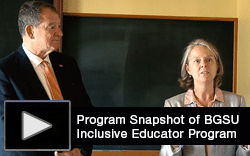 AACTE is excited to share the latest videos of its Research-to-Practice Spotlight Series on Special Education this spring. The video interviews feature faculty, students, and school district leaders who work with Portland State University (Portland, OR) and Bowling Green State University (Bowling Green, OH) to implement extensive clinical preparation for teacher candidates pursuing careers in general and special education. The link to view the video series is now available!
AACTE is excited to share the latest videos of its Research-to-Practice Spotlight Series on Special Education this spring. The video interviews feature faculty, students, and school district leaders who work with Portland State University (Portland, OR) and Bowling Green State University (Bowling Green, OH) to implement extensive clinical preparation for teacher candidates pursuing careers in general and special education. The link to view the video series is now available!
In my recent blog post, I shared a brief introduction to the new Research-to-Practice Spotlight Series. The videos highlight exemplary practices of the two teacher preparation programs for ensuring their candidates are ready to work with all students, including students with disabilities. Though different in many programmatic elements to address their local contexts, each university designed their programs to equip all teachers with the skills necessary to instruct the diverse needs of their student population.
The Master’s Program in Secondary Dual Education at Portland State University features dual certification in both general and special education at the secondary level. Entrants to the program come with an undergraduate degree in a content area and engage in two years of extensive and increasing involvement in clinical settings in secondary schools. Principals consider the program transformative in terms of the skills graduates bring to their classrooms.
05 Apr2019
By Brandon R.T. Frost
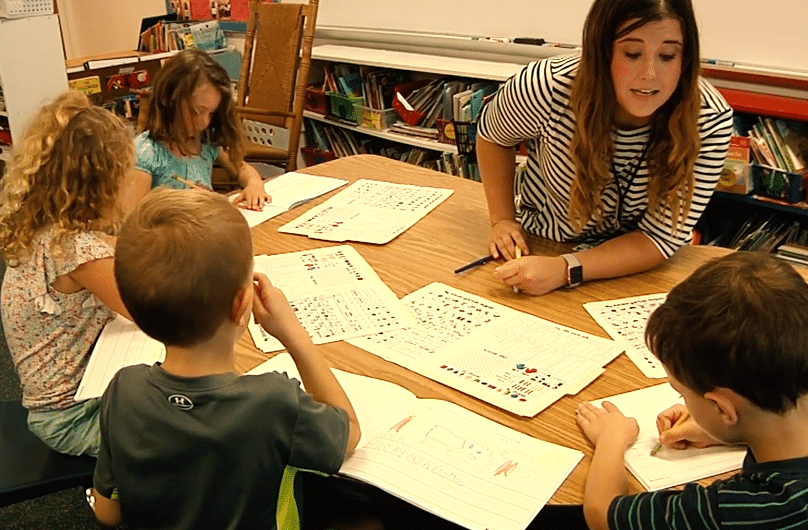
AACTE identified and documented two exemplary teacher preparation programs that ensure all of their candidates are ready to work with all students, including students with disabilities. We are pleased to feature a set of videos from each program documenting how they implement curriculum for dual certification (general education and special education) and feature extensive clinical preparation.
Bowling Green State University’s undergraduate Inclusive Early Childhood Program and Portland State University’s Secondary Dual Education Program support new and beginning teachers in teaching in inclusive classrooms. Both programs lead to certifications in general and special education. “These institutions ensure that all educators have the skills to work with students with disabilities in the 21st century,” said AACTE Consultant Jane West, “School districts scramble to hire these outstanding students, as they come with the mindset and the skillset to be effective with all students.”
02 Apr2019
By Ward Cummings
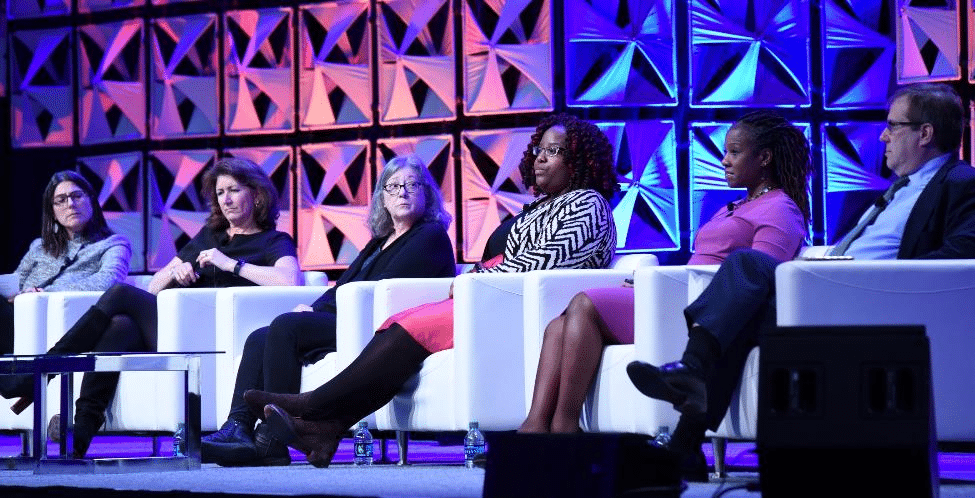
The Deeper Dive session, “Too Expensive to Ignore,” held during the AACTE 2019 Annual Meeting explored the many creative ways educators are working to address the high costs associated with becoming a teacher. The panel discussion was moderated by Karen DeMoss, executive director of Prepared to Teach, Bank Street College of Education, and the presenters were Tara Kini, director of state policy at the Learning Policy Institute (LPI); Karen Riley, dean of the College of Education at the University of Denver; Karen Kindle, division chair, Teacher Residency and Education at the University of South Dakota (USD); Jeannie Aversa, coordinator of educator effectiveness at the Syracuse City School District; and Nichole Brown, director of field placement and project director, Teacher Opportunity Corp II at SUNY Oswego. The group of educators engaged in a lively conversation about how to create sustainable funding for teacher residencies.
DeMoss began the discussion with an overview of the reasons solutions to the funding problem are necessary. She shared that attracting diverse candidates to the teaching profession requires a focus on the money matters that teaching candidates care about. For example, 40% of undergraduates and 76% of graduate students work full time, and they incur debt that is often untenable in comparison to the salaries they can expect as teachers.
 and photo originally appeared in Appalachian Today and are reprinted with permission.
and photo originally appeared in Appalachian Today and are reprinted with permission.
















 Georgia Southern University and Haven Elementary School are partnering to offer teachers a Gratifying Problem-Solving (GPS) program, which will provide educators unique monthly professional development based on the school’s current need for improved mathematics instruction.
Georgia Southern University and Haven Elementary School are partnering to offer teachers a Gratifying Problem-Solving (GPS) program, which will provide educators unique monthly professional development based on the school’s current need for improved mathematics instruction.

